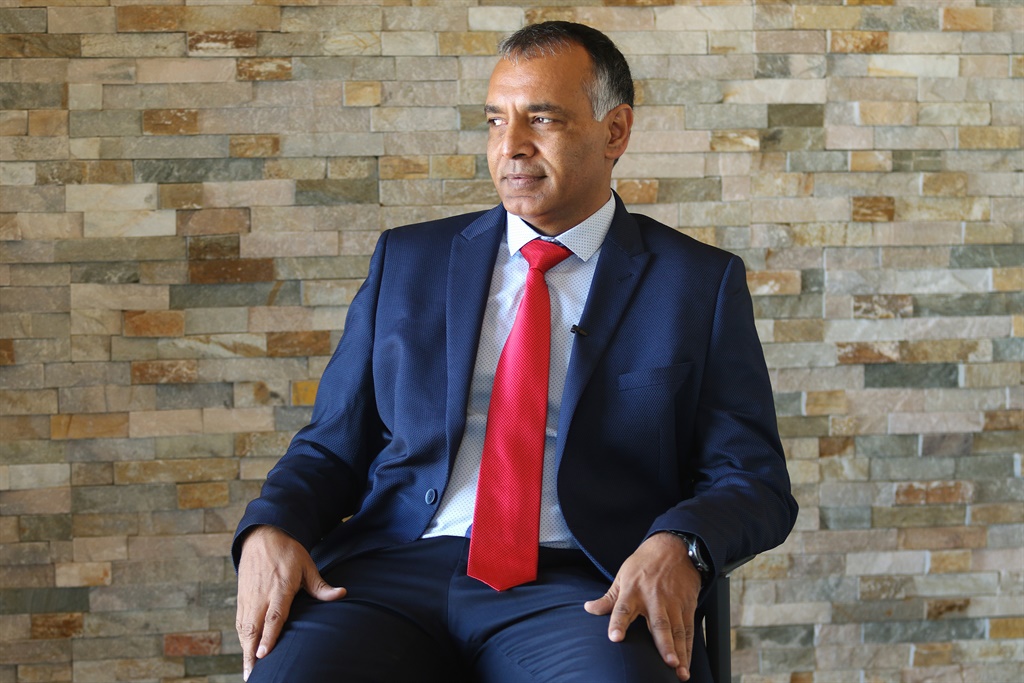


Professor Shabir Madhi
Supplied: Wits University
- Top scientist argues that South Africa is only experiencing the first wave of the global Covid-19 pandemic.
- South Africa has just breached 100 000 cases of Covid-19.
- The peak of infections is dependent on the behaviour of South Africans, Professor Madhi argues.
South Africa is only experiencing the first Covid-19 wave and will probably experience two to three more waves of the pandemic right into 2022, top scientist Professor Shabir Madhi said on Wednesday.
“South Africa is not in a second spike, we are still in the first wave of the pandemic. We are probably going to experience three to four waves, probably right into 2022 at this rate,” Madhi said at a MyHealthTV.com webinar on Wednesday.
Professor Shabir Madhi said:
We are not in a second spike, we are still pretty much sort of in an upward trajectory of the first wave; we have not even peaked, not even the Western Cape has peaked as yet in terms of this current outbreak.
Madhi is Professor of Vaccinology at the University of the Witwatersrand and the director of the Medical Research Council Respiratory and Meningeal Pathogens Research Unit.
The scientist is leading the study on South Africa’s first Covid-19 vaccine trial which will see 2 000 participants enrolled with an aim of finding a vaccine that will prevent SARS-CoV-2 infection, which is the virus that causes Covid-19.
READ | Wits announces SA’s first Covid-19 vaccine trial, first participants to be enrolled this week
Currently, South Africa has breached over 100 000 cases. As of Tuesday, the country had 106 108 cases of Covid-19, with 55 045 recoveries and 2 102 deaths.
Peak dependent on the behavior of South Africans – Madhi
When Madhi described what the peak of infections would look like in the country, he explained that this would be dependent on the behaviour of South Africans.
“It is not dependent on any policy government comes up with, it is not dependent on whatever level of lockdown we are at, it is completely dependent on the behavior of South Africans,” he argued.
Madhi further stated that, in countries where there has been a waning of the outbreak, it has been based on lockdowns and citizens of that country.
“It’s been based because of lockdowns, but more important than that, it was about citizens of the country adhering to the non-pharmaceutical interventions which we now know are effective in terms of reducing the rate of the transmission of the virus.
“What I am referring to is things such as completely avoiding mass gatherings, ensuring physical distancing, the use of surgical face masks – those three are the most important tools that we have got available in our tool box to be able to slow the rate of infection. It does not mean that it is going to provide 100% protection against becoming infected, but it will slow the rate of the transmission of the virus and that will allow for the peak to be at a lower amplitude compared to if we do not adhere to interventions,” he explained.
He further said that lack of adherence would lead to the crippling of healthcare services which was “already occurring in the Eastern Cape and the Western Cape”.
Madhi is of the view that the only way to mitigate this is to slow the rate of the transmission of the virus.
“[The lockdown slowed] the epidemic but we still continued with an increase in the number of cases but now that the lockdown has been lifted and people are not adhering to non-pharmaceutical interventions we are seeing an acceleration in terms of the rate of infection which is resulting in what is being experience right now,” he said.

